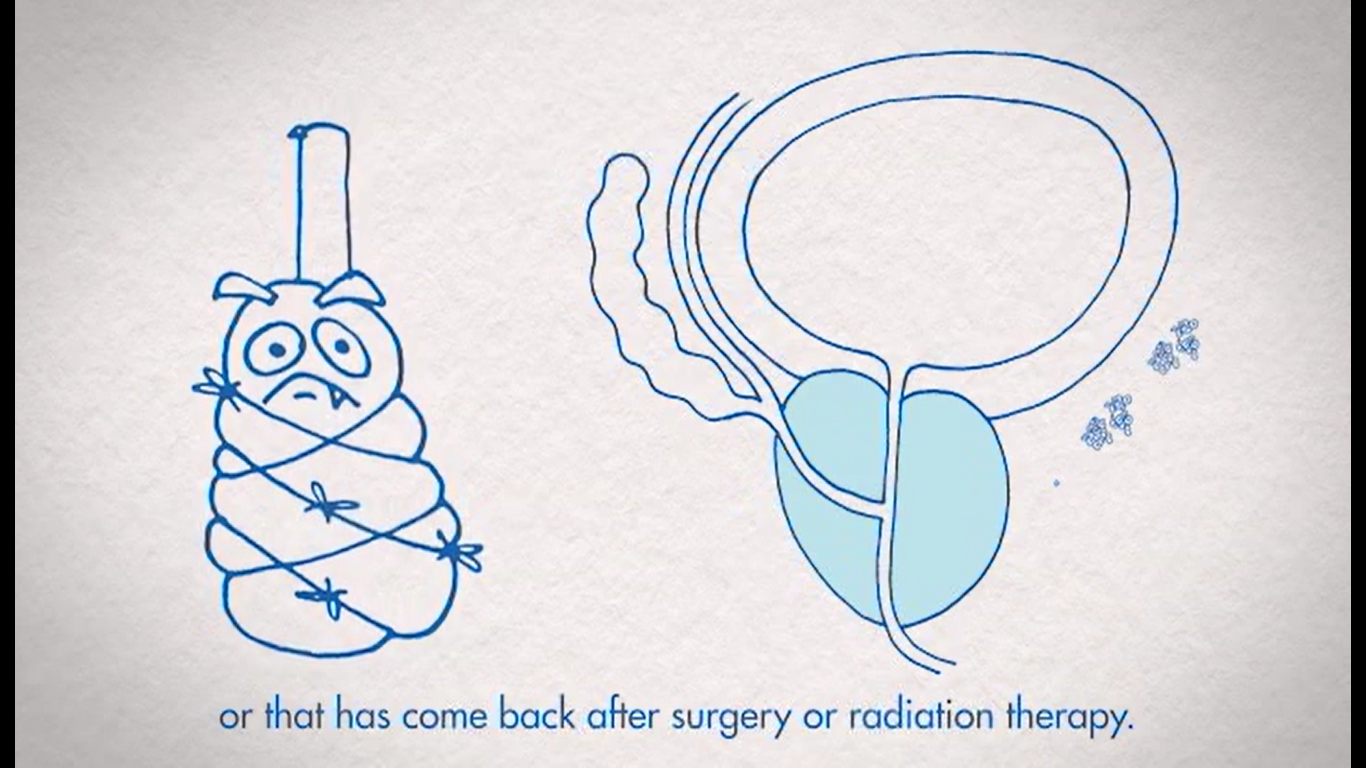Advanced prostate cancer-What should I know? The term advanced prostate cancer does not describe just one type of disease, but several. It can be locally advanced, recurrent, metastatic, or resistant to castration. These terms are probably unfamiliar to you and can raise many questions. Here are 5 things you should know
- Your cancer has returned? We can still go for a cure or control the intruder in the long term
Usually, your doctor will see a recurrence when your PSA level starts to rise again. How quickly your PSA levels are rising, and your type of cancer help determine whether it is a local or metastatic recurrence. In the event of a recurrence, various treatment options may be used, with the aim of curing, if not controlling its progression, if it is aggressive. Standard hormone therapy is often part of the treatment option and can keep your cancer under control for several years.
- Your PSA levels are going up despite your hormone therapy?
Your doctor may delay the start of additional treatment if the level increases very slowly over a long period of time, as progression to metastases can take several years. However, if you have a rapid increase in your PSA (you go from 1 to 2 to 4 to 8 in less than a year), next-generation hormone therapy may be offered. Results from studies with apalutamide (Erleada), enzalutamide (Xtandi), and darolutamide (Nubeqa) all show that they can delay the onset of metastases by several years. This is called castration-resistant cancer without metastasis.
- Your cancer is progressing, and we are in the presence of metastases?
Being diagnosed with metastatic prostate cancer is rather rare these days due to screening tests and the PSA test. Large, published studies have shown that if you start hormone therapy as soon as metastases are detected, survival is significantly prolonged. Also, the addition of a new generation hormone therapy, for example, abiraterone (Zytiga), enzalutamide (Xtandy), apalutamide (Elreada) – can be given in the presence of metastases, whether you are resistant or sensitive to your standard hormone therapy. This makes it possible to «hit hard» cancer at the beginning and thus keep it in remission as long as possible. Furthermore, next-generation hormone therapy can be prescribed before or after chemotherapy.
- Have I exhausted my treatment options if I no longer respond to hormone therapy?
Hormone therapy – standard or new generation – can keep your cancer under control for several years. If your cancer develops resistance to these classes of drugs, you could be treated with chemotherapy, radium-223, or through a research protocol, if there is one of course. One thing is certain: your treatment will aim to prolong your life, slow the progression of your cancer, relieve your symptoms if you have any, and improve your quality of life.
- Your cancer is stubborn and continues to grow? The importance of advances in research
For more than 10 years, several studies have allowed the approval of multiple treatments in patients at this stage, not to mention new molecules available and research protocols in progress. For example, the use in medical imaging of PSMA, a specific marker, will change the management of prostate cancer. It will make it possible to detect a recurrence or lymph node metastases at the very beginning or will allow to find tumors and destroy them in the process.
For men with the BRCA mutation and treated with olaparib, a PARP inhibitor, we saw a significant slowdown in the progression of the disease. PARPs are enzymes that help repair damage to DNA. By blocking them, olaparib prevents cancer cells from making repairs and thus causes their death. In the near future, treatments will be personalized according to your genetic map (DNA). This is why it is very important to have hope.
Discover our new animated videos
Discover three new animated videos, each equally unique and original from one to the other. Be on the lookout!
Here is the third one – The role of hormone therapy
Take the time to visit each of our pages on this website, as well as our YouTube channel, in order to get familiar with the disease with our expert lectures, our section on available resources, the support that is offered to you.
Do you have any questions or concerns? Above all, do not hesitate. Contact us at 1 855 899-2873 to discuss with a nurse specializing in uro-oncology. It’s simple and free, like all our services.
A webinar that might interest you
New Therapies for Advanced Prostate Cancer with Dr. Armen Aprikian–November 2020
Pages of our site that might interest you
Want to know more? Just click on one of the links below.
Prognosis and survival
I have advanced cancer
PROCURE news that may interest you
Each week, we publish a blog article. Here are a few for you.
Alone against my diagnosis… Serge’s story
Welcome life… Serge’s story
Investing in your health, a must… Martin’s story
Quite a shock… Martin’s story
Written by PROCURE. © All rights reserved – 2020



 ADDITIONAL RESOURCES
ADDITIONAL RESOURCES


